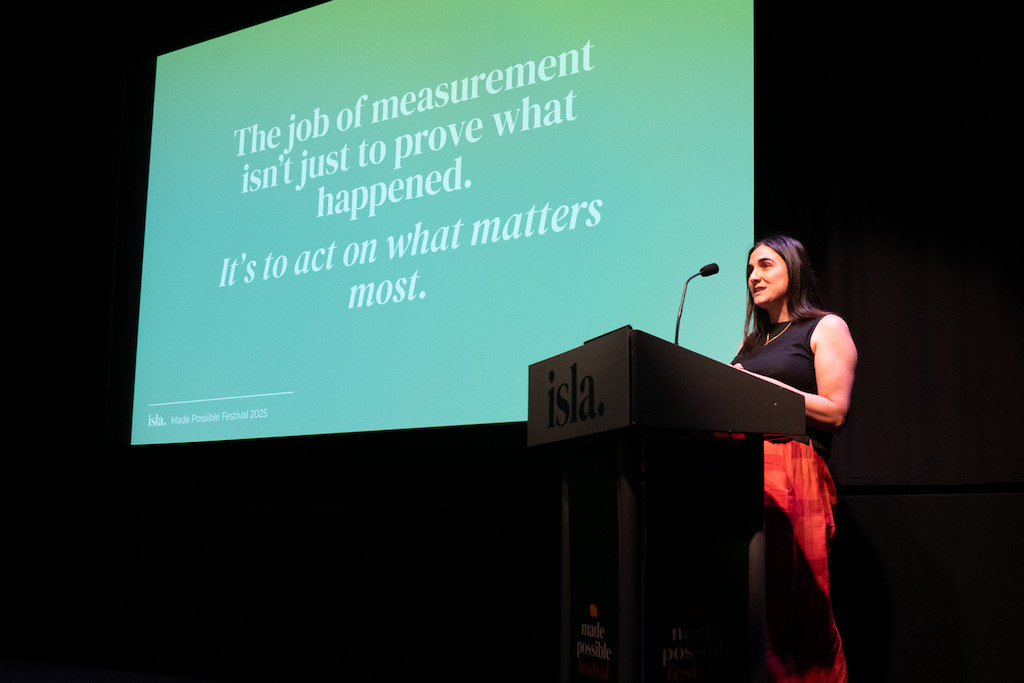Anna Abdelnoor, CEO of isla, challenged the industry to replace surface-level actions with data-led decisions as she unveiled the event sustainability organisation’s new European Temperature Check 2025.
Launched at isla’s Made Possible Festival at Barbican Centre last week, the study analyses data from almost 1,000 events measured in TRACE, isla’s carbon measurement platform, and blends it with survey responses and in-depth interviews from brands, agencies, venues and suppliers.
Speaking at the event, Abdelnoor said: “This isn’t a knowledge gap—it’s a behaviour gap. We are ignoring obvious, easily achieved actions and acting on optics, not outcomes.”
The report, which builds on isla’s 2023 UK-only snapshot, paints a more robust picture of emissions in events across Europe. Abdelnoor highlighted the power of this new dataset, noting that over 2,700 unique supply chain businesses have now contributed data to TRACE—a 1,200% growth in participation.
Key insights from the session included:
1. We’re still designing for disposal
Despite rhetoric around circularity, Abdelnoor pointed out that 75% of reported materials are still virgin sourced, and over half are single use. “We use words like ‘recyclable’ as if they’re circular strategies—but they’re not,” she said. “They’re just different flavours of end-of-life.”
2. Sustainability needs accountability
While companies with sustainability budgets unsurprisingly make more progress, “accountability is free,” Abdelnoor stressed. “If you’re not willing to write sustainability into a job description, are we really serious about change?”
Data shows that leaders are 10 times more likely to include sustainability in job roles and five times more likely to have green teams driving internal engagement.
3. The lowest-hanging fruit is still untouched
Abdelnoor also highlighted the industry’s lack of progress on meat-free catering—despite it being a simple, high-impact action. “Apparently, the buffet table is where data goes to die,” she said, noting that meat-free menus have barely increased since 2022, despite a sevenfold increase in reported events.
Meanwhile, disproportionate effort continues to be spent on “optical” swaps like compostable serve ware, which she dismissed as a waste of time. “Compostables might feel responsible, but they don’t lower your carbon footprint.”
“Measurement is more than a mirror—it’s a multiplier,” Abdelnoor concluded. “If our measurement is shallow, our actions will be shallow as well. But if we get it right, it accelerates everything.”
The full European Temperature Check 2025 report is free to download and offers practical benchmarks, legislative insight, and real-world actions for reducing event emissions across Europe.

